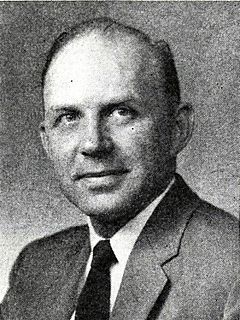A Quote by Lorenzo Snow
The law of tithing is one of the most important
ever revealed to man. . . . Through obeying
this law the blessings of prosperity and
success will be given to the Saints.
Related Quotes
To those of you who pay your tithing, I commend you. To those of you who presently are not obeying the law of tithing, I invite you to consider your ways and repent. I testify that by your obedience to this law of the Lord, the windows of heaven will be opened to you. Please do not procrastinate the day of your repentance.
Often as we teach and testify about the law of tithing, we emphasize the immediate, dramatic and readily recognizable temporal blessings that we receive. And surely such blessings do occur. Yet some of the diverse blessings we obtain as we are obedient to this commandment are significant but subtle.
President J. Reuben Clark, Jr., a modern prophet, said over and over again that the Lord would never let one of his Saints who had been faithful in the payment of tithes and offerings go without the necessities of life” (Marion G. Romney, “The Blessings of an Honest Tithe,” New Era, Jan.-Feb. 1982, 45). Members who faithfully pay tithing are promised spiritual blessings as well. “I think it is not well known in the Church that payment of tithing has very little to do with money. Tithing has to do with faith
There is one all-important law of human conduct. If we obey that law, we shall almost never get into trouble. In fact, that law, if obeyed, will bring us countless friends and constant happiness. But the very instant we break the law, we shall get into endless trouble. The law is this: Always make the other person feel important.
The civil magistrate cannot function without some ethical guidance, without some standard of good and evil. If that standard is not to be the revealed law of God (which, we must note, was addressed specifically to perennial problems in political morality), then what will it be? In some form or expression it will have to be the law of man (or men) — the standard of self-law or autonomy.
The Gospel is temporary, but the law is eternal and is restored precisely through the Gospel. Freedom from the law consists, then, not in the fact that the Christian has nothing more to do with the law, but lies in the fact that the law demands nothing more from the Christian as a condition of salvation. The law can no longer judge and condemn him. Instead he delights in the law of God according to the inner man and yearns for it day and night.
































